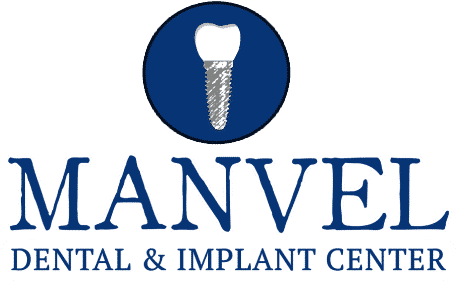Tired of avoiding your favorite foods just because you have dentures? Well, it’s time to put those worries aside and start enjoying your meals again! Eating with dentures may seem daunting at first, but with a few simple tips and tricks, you can confidently bite into that juicy steak or crunchy apple without any discomfort. In this blog post, we’ll share some expert advice on how to eat with dentures like a pro. So let’s dig in!
What are Dentures?
Dentures are a common solution for tooth loss, and with modern advancements, they can look and feel very natural. Dentures are removable appliances that can be taken out and put back in your mouth. They are typically made of acrylic or porcelain and can be supported by your gums or dental implants.
If you have dentures, you may be wondering how to best eat with them. Here are some tips and tricks:
Start with soft foods: When you first get dentures, your mouth will need time to adjust. Stick to soft foods like mashed potatoes, yogurt, soup, and eggs. Avoid chewy or hard foods like steak or candy.
Use both sides of your mouth: When chewing, use both sides of your mouth at the same time to evenly distribute the force. This will help prevent your dentures from slipping.
Chew slowly and thoroughly: It takes practice to learn how to chew with dentures since they don’t have the same biting surface as natural teeth. Chew slowly and thoroughly to avoid accidentally biting your tongue or cheek. Use a small bite plate if needed.
Be careful with hot beverages: Hot beverages can cause burns if they come into direct contact with your gums. Sip carefully and Blow on your food to cool it down before taking a bite.
Benefits of Eating with Dentures
If you have dentures, you may be wondering how to go about eating with them. Here are some tips and tricks to make the process easier.
- Start with soft foods: When first getting used to eating with dentures, it is best to start with soft foods. This will help you get a feel for how your dentures work and how much pressure you need to apply when chewing.
- Cut your food into small pieces: Cutting your food into small pieces will also help you get used to chewing with your dentures. It can be tempting to just bite into something, but this can cause your dentures to slip out of place.
- Use a lot of water: Drinking plenty of water while you eat will help keep your mouth moist and will also help rinse away any food particles that may get stuck under your dentures.
- Avoid sticky or hard foods: Sticky or hard foods can be difficult to eat with dentures and can also cause them to come loose. If you must eat these types of foods, do so with caution and be sure to have plenty of water on hand to avoid dehydration.
Tips For Eating with Dentures
If you’re new to wearing dentures, eating with them can take a little bit of getting used to. But with a little practice, you’ll be able to eat all your favorite foods in no time! Here are some tips to help you get started:
- Start with soft foods: Soft foods are easier to chew and won’t put as much strain on your dentures. Try starting with mashed potatoes, cooked vegetables, soups, or yogurt.
- Cut your food into small pieces: This will make it easier to chew and will help prevent your dentures from slipping out of place.
- Use both sides of your mouth: When you bite into food, use both sides of your mouth at the same time. This will help keep your dentures in place and prevent them from tipping over.
- Be patient: It takes time to get used to eating with dentures. Don’t get discouraged if you have trouble at first – just keep practicing and you’ll eventually get the hang of it!
Food Choices When Eating with Dentures
If you’re new to wearing dentures, you may be wondering what the best food choices are. While you can pretty much eat whatever you want with dentures, there are a few things to keep in mind.
First, avoid sticky or hard foods. Sticky foods can cling to your dentures and be difficult to remove. Hard foods can crack or break your dentures.
Second, cut your food into small pieces. This will make it easier to chew and also help prevent your dentures from slipping.
Finally, be careful with hot liquids. Sip slowly and avoid using straws, as they can cause your dentures to come loose.
With a little practice, you’ll be eating like a pro in no time!
Caring for Your Dentures
If you have recently had dental surgery that resulted in the removal of all or most of your natural teeth, you may be wondering how to go about eating with dentures. Here are a few tips and tricks to help make the transition a little bit easier.
To start, it is important to get used to handling your dentures. Be sure to clean them daily with a mild soap and water solution. You will also need to remove them at night and soak them in a denture cleanser solution. It is also important to brush your gums and tongue each day to keep them healthy.
When it comes time to eat, start with soft foods that are easy to chew. Gradually add in other foods as you become more comfortable with chewing and biting. Avoid sticky or hard foods as well as hot beverages, which can cause your dentures to loosen. Be sure to cut food into small pieces and chew slowly and evenly on both sides of your mouth.
If you experience any discomfort while eating, be sure to consult with your dentist. They can make adjustments to your dentures or suggest different ways of eating that may be more comfortable for you.
Conclusion
Eating with dentures can be daunting at first, but with patience and practice it can become second nature. It’s also important to remember to take care of your dentures by properly cleaning them after each meal. Taking the time to learn how to eat meals comfortably and safely will help you feel more confident when dining out or eating with friends and family. With these tips and tricks in mind, you’re sure to find success in eating with dentures!
FAQs
How do I clean my dentures?
You should brush your dentures at least once a day, using a soft-bristled brush and a nonabrasive cleanser. Avoid using hot water, which can damage dentures. You can also soak your dentures overnight in a solution of cool water and mild detergent.
Can I eat anything with my dentures?
You can eat almost anything with your dentures, but you may find that certain foods are more challenging than others. Avoid sticky or hard foods, and cut your food into small pieces to make chewing easier. Chew slowly and use both sides of your mouth at the same time to avoid putting too much pressure on one side.
What should I do if my dentures hurt?
If your dentures start to hurt, it could be because they’re ill-fitting or because you’re not used to wearing them yet. Make sure that your dentures fit properly and see your dentist if they continue to cause pain or discomfort. With time and practice, you should be able to wear your dentures comfortably all day long!


